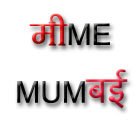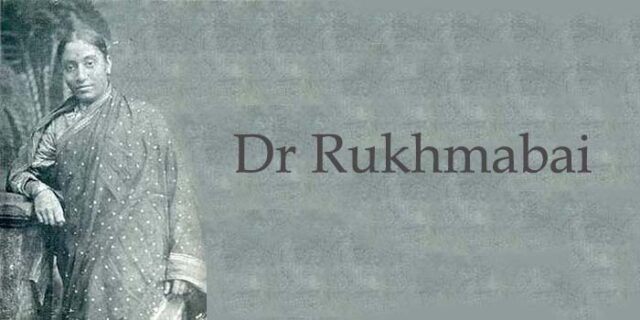Dr Rukhmabai is the first practicing lady doctor of India and she was one of the most important figures fighting for the cause of women’s rights when women had no rights even to speak. The most significant part of her life was the most publicized court cases in Bombay which had an impact not only in India but even got attention in the British press. issue of child marriage and the rights of women.
Rukhmabai was born on 22nd November 1864, Bombay in a Marathi family. Her parents were Janardhan Pandurang and Jayantibai. Rukhmabai’s father died when she was 2 years old and her mother 17 years. After 7 years, her mother married to an eminent physician and social activist, Dr Sakharam Arjun staying in Bombay.
During that time there was the custom of child marriage and even re-marriage of widows was permitted. 11-year-old Rukhmabai was married to the 19-year-old Dadaji Bhikaji, a cousin of her step-father. In accordance with the prevailing customs, Rukhmabai did not live with her husband but stayed in her parents’ house in the years following her marriage. During this period, she diligently followed her stepfather’s instructions to educate herself, much against the norms of the time.
Famous Court Case
Rukhmabai was still studying in school when her husband Dadaji Bhikaji demanded in March 1884 that she come and live with him. She refused, and Dadaji petitioned the Bombay High Court for restitution of conjugal rights of a husband over his wife. In simple terms, he wanted the court to direct his wife Rukhmabai to move into his house and live with him.
But Dr Sakharam Arjun, being an eminent physician of reformist tendencies, did not permit early consummation. Dadaji petitioned the Bombay High Court for restitution of conjugal rights of a husband over his wife.
The court gave her two options – to either comply with its orders or face imprisonment and go to jail. Rukhmabai stood her ground, stating that she preferred courting imprisonment for violating orders than remaining in a marriage that she did not want. Her argument that she could not be compelled into a marriage that was conducted at an age when she was incapable of giving consent was an argument hitherto unheard of and unimaginable.
In 1888, Dadaji accepted monetary compensation in lieu of dissolution of the marriage. As a result, the two parties came to a compromise and Rukhmabai was saved from imprisonment. She had also refused all offers of financial assistance and had paid her own legal costs. Despite the out-of-court settlement, this case became a landmark in colonial India for raising issues of age, consent and choice for women in marriage.
Her Studies & Achievement
She continued with her studies due to her father’s association with religious and social reformers. She also got involved socially by attending meetings of Arya Mahila Samaj and Prarthana Samaj.
Supported by Edith Pechey Phipson, the British director of Bombay’s Cama Hospital, Rukhmabai underwent an English language course and went to England in 1889 to study at the London School of Medicine for Women. She also obtained qualifications at Edinburgh, Glasgow and Brussels before graduating in 1894.
In 1894, she received her Doctor of Medicine from the London School of Medicine for Women having also studied at the Royal Free Hospital. Doctors Kadambini Ganguly and Anandi Gopal Joshi were the first Indian women to have received medical degrees in 1886.[19] But only Dr. Ganguly went on to practice medicine, making Rukhmabai the second woman to both receive a medical degree and practice medicine.[20]
In 1895, she returned to India and worked as the Chief Medical Officer at the Women’s Hospital in Surat. In 1918, she turned down the offer of a role in the Woman’s Medical Service, opting instead to work at the Zenana (Woman’s) State Hospital in Rajkot until her retirement in 1929. She established the Red Cross Society at Rajkot. Rukhmabai chose to settle in Bombay after her retirement.
Her defiance of social conventions and customs that discriminated against women shook up a lot of people in the conservative Indian society of the 1880s and led to the passage of the Age of Consent Act in 1891. She then endured years of humiliation with extraordinary courage and determination, inspiring many other women to take up medicine and social service in the coming years.
Rukhmabai died, aged 90, from lung cancer on 25 September 1955.








